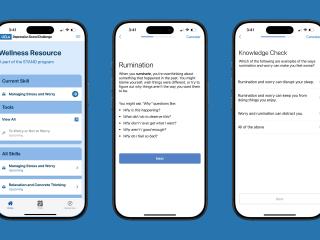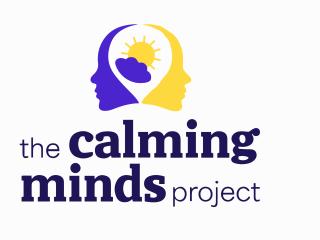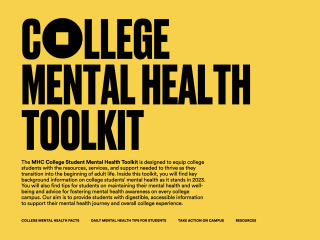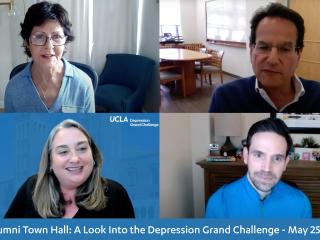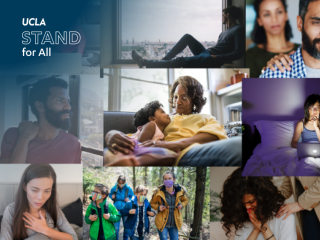The UCLA Depression Grand Challenge secured funding from friends and supporters in 2019 to develop STAND 2.0: modular content that could be packaged in different combinations and sequences to address common mental health issues such as low mood, worry, panic, trauma and poor sleep.
The STAND content library was developed to serve as the backbone for Tier 2 services in implementations of the STAND system of care. With the onset of the COVID-19 pandemic, however, the DGC executive committee identified the opportunity to leverage the STAND content library for more than one single use, and now multiple implementations leveraging the STAND content library are publicly available.
The current STAND content library consists of more than 30 copyright-protected lessons, and DGC team members continue to supplement and improve this content library. The lessons include text, interactive exercises, audio recordings and narrative vignettes designed to help users learn new cognitive behavioral skills and strategies to address specific issues.
Content development
Content development is an iterative process, leveraging expertise from within UCLA and, at times, from experts at other universities. The DGC has utilized a blended workforce of full- and part-time employees, including instructional designers, undergraduate students, graduate students, artists, sound editors and voice actors who contribute their expertise to storyboarding, scripts, exercises, animations, voiceovers and editing for lesson development. Much of the initial content first available in 2020 was created under the guidance of Zachary Cohen, a postdoctoral fellow at the time, and Tom Christiansen, a special projects consultant. Beginning in 2022, the DGC hired a dedicated team, including instructional designers, to further refine the content and expand topic areas (e.g., nutrition, eating disorders). In 2023, new STAND content was finalized for a version of STAND intended to treat perinatal depression (PND) specifically, named STAND for PND. This version of STAND was leveraged for the New Moms Mood study and for a digital sensing for PND study expected to launch in 2025.
The DGC continues to refine and expand the contents of the library.
Content delivery (platforms)
How the content is delivered depends upon the implementation. For site-specific implementations, the content is delivered in a closed-system platform. For other implementations, such as STAND Tips, content is delivered through public websites. For STAND for All, content is delivered through UCLA’s instance of Canvas, known as BruinLearn.
A priority beginning prior to the 2024-25 fiscal year was to identify a new content delivery platform that might be used for both site-limited and open implementations. In Summer 2024, the MyDataHelps platform, developed by CareEvolution, was piloted as a solution, reimagining the user experience with a segment of the STAND Content referred to as the WellnessResource or Tier 1 content. This STAND Wellness Resource is now integrated both into the site-specific implementations and the publicly available STAND for All program. The STAND content team continues to reimagine and migrate the entire content library to this new platform. When fully migrated, this content will be referred to as STAND 3.0.
To have an engaging means to deliver cognitive behavioral strategies addressing common mental health issues that may be flexibly distributed to support various STAND implementations.
Indefinite
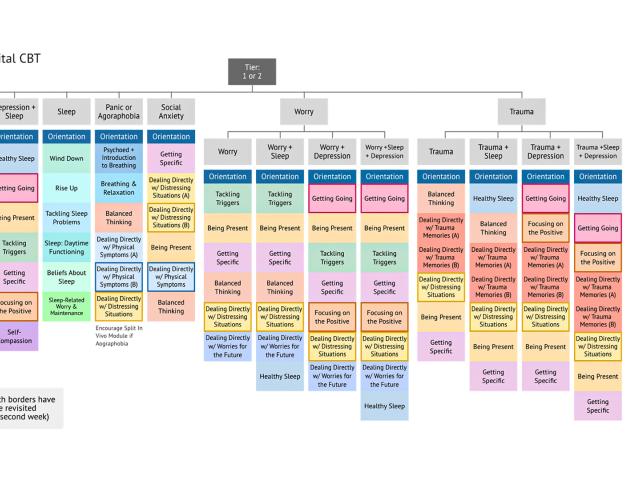
Thought leader: Michelle Craske
Staff leads: Jennifer Snoeyink
Gifts

